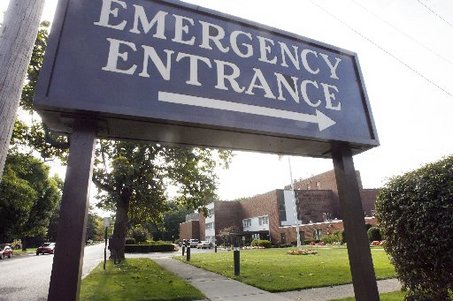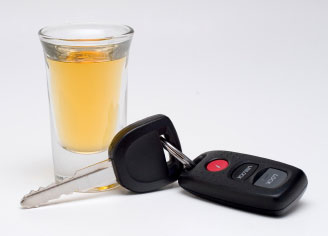Holiday Travel
Friday, December 23rd, 2016 This holiday season AAA is expecting 103 million Americans to travel, which is nearly 1.5 million more people than last year. While many people choose to fly to their Christmas destinations, AAA is predicting that more people will be driving this year than previous years. It is very important that those driving, no matter the distance, are prepared for their travel. Make sure you’ve recently gotten an oil change, check your tires to make sure they have the right pressure, never let your gas tank get below ¼ of a tank while traveling, and secure all luggage in your car.
This holiday season AAA is expecting 103 million Americans to travel, which is nearly 1.5 million more people than last year. While many people choose to fly to their Christmas destinations, AAA is predicting that more people will be driving this year than previous years. It is very important that those driving, no matter the distance, are prepared for their travel. Make sure you’ve recently gotten an oil change, check your tires to make sure they have the right pressure, never let your gas tank get below ¼ of a tank while traveling, and secure all luggage in your car.
While traveling with a car load of family members, or even alone, traffic can make things very stressful. However, it is very important that you remember that patience is key in these situations to make sure everyone on the roads remains safe. If you need to be at your destination by a specific time, AAA suggests that you leave earlier than you normally would as you should expect delays during this holiday season.
Law enforcement will be on all North Carolina roads through the New Year enforcing their annual Booze It & Lose It campaign. The goal of this campaign is to keep the roads safe this holiday season and help save lives. It is very important that you do not get into a car after you have been drinking as it can have deadly consequences. Last December alone there were 431 fatalities due to car accidents involving a drunk driver. To try to avoid this, there will be an increased number of saturation patrols and checkpoints so that people know they will be stopped and charged if they are drinking and driving over the legal limit. There are several DWI Task Force teams funded by the N.C. Governor’s Highway Safety Program and these officers are responsible for working nightly to catch impaired drivers. These Task Force teams are located in many different counties, including, Brunswick County, NEw Hanover County, Pender County.
Please be safe, smart, and avoid distractions this holiday season! However, if you happen to find yourself in trouble, whether it be a traffic ticket, car accident, or a criminal charge such as an alcohol related offense, please call Collins Law Firm for a confidential consultation at 910-793-9000.
By Kimberlin Murray, Legal Assistant

 Since 1935, in North Carolina, there has been a statutory lien upon sums of money recovered as damages for personal injury claims. “This lien is in favor of any person, corporation, State entity, municipal corporation or county to whom the person so recovering, or the person in whose behalf the recovery has been made, may be indebted for any drugs, medical supplies, ambulance services, services rendered by any physician, dentist, nurse, or hospital, or hospital attention or services rendered in connection with the injury in compensation for which the damages have been recovered. Where damages are recovered for and in behalf of minors or persons non compos mentis, the liens shall attach to the sum recovered as fully as if the person were sui juris.” . N.C.G.S § 44-49.
Since 1935, in North Carolina, there has been a statutory lien upon sums of money recovered as damages for personal injury claims. “This lien is in favor of any person, corporation, State entity, municipal corporation or county to whom the person so recovering, or the person in whose behalf the recovery has been made, may be indebted for any drugs, medical supplies, ambulance services, services rendered by any physician, dentist, nurse, or hospital, or hospital attention or services rendered in connection with the injury in compensation for which the damages have been recovered. Where damages are recovered for and in behalf of minors or persons non compos mentis, the liens shall attach to the sum recovered as fully as if the person were sui juris.” . N.C.G.S § 44-49.
 The recent snow storm in the east coast caused school closings and court closings in Southeastern North Carolina including New Hanover, Brunswick, Pender, Columbus, Bladen, Sampson, Duplin, and Onslow Counties. The criminal and traffic charges which were set for the days court was closed are continued to the next court day for the charging officer. Most people with court dates which were set for the days court was closed will be notified by the clerk’s office about their next court date. Defendant’s with lawyers should consult with their attorney about their next court date.
The recent snow storm in the east coast caused school closings and court closings in Southeastern North Carolina including New Hanover, Brunswick, Pender, Columbus, Bladen, Sampson, Duplin, and Onslow Counties. The criminal and traffic charges which were set for the days court was closed are continued to the next court day for the charging officer. Most people with court dates which were set for the days court was closed will be notified by the clerk’s office about their next court date. Defendant’s with lawyers should consult with their attorney about their next court date. Anyone can be charged with a crime, and many people are wrongfully accused. Just because someone has been charged does not mean they are guilty. Criminal charges, even wrongful criminal charges, result in criminal records which can affect people for their entire life. Therefore, it is very important that people who are charged take the matter seriously and take appropriate steps to avoid or mitigate the negative consequences of criminal charges. In some cases, it is possible to have criminal records expunged which means the official public records are removed and destroyed by a process called expungement or expunction.
Anyone can be charged with a crime, and many people are wrongfully accused. Just because someone has been charged does not mean they are guilty. Criminal charges, even wrongful criminal charges, result in criminal records which can affect people for their entire life. Therefore, it is very important that people who are charged take the matter seriously and take appropriate steps to avoid or mitigate the negative consequences of criminal charges. In some cases, it is possible to have criminal records expunged which means the official public records are removed and destroyed by a process called expungement or expunction. The holidays are upon us and most people are attending holiday parties and other holiday events. Many of these events offer alcohol and law enforcement is aware of that fact. Enforcement of traffic laws are often increased during holidays and this season is no exception. Last week alone, for example, there were over 70 people charged with driving while impaired (DWI/DUI) in New Hanover County, NC.
The holidays are upon us and most people are attending holiday parties and other holiday events. Many of these events offer alcohol and law enforcement is aware of that fact. Enforcement of traffic laws are often increased during holidays and this season is no exception. Last week alone, for example, there were over 70 people charged with driving while impaired (DWI/DUI) in New Hanover County, NC.  North Carolina’s New Motor Vehicles Warranties Act (§§ 20-351 – 20-353), also known as North Carolina’s Lemon Law (and federal Lemon Laws such as the Magnuson-Moss Warranty Act) provide for compensation for purchasers of defective vehicles. To qualify for relief under North Carolina’s Lemon Law, you must have purchased a new vehicle that has had multiple repair attempts under the manufacturer’s factory warranty, and it must be “seriously defective” and cannot be repaired in a “reasonable number of attempts.”
North Carolina’s New Motor Vehicles Warranties Act (§§ 20-351 – 20-353), also known as North Carolina’s Lemon Law (and federal Lemon Laws such as the Magnuson-Moss Warranty Act) provide for compensation for purchasers of defective vehicles. To qualify for relief under North Carolina’s Lemon Law, you must have purchased a new vehicle that has had multiple repair attempts under the manufacturer’s factory warranty, and it must be “seriously defective” and cannot be repaired in a “reasonable number of attempts.” Traffic tickets can be a lot more expensive than the fine and court costs stated on the ticket. For most traffic tickets, if you just pay off the ticket, you will be convicted of the charge, and you will be assessed points both on your driver’s license and on your insurance policy. Insurance points can be very expensive. They cause your insurance premiums to increase for three years, and for most policies, that will add up to thousands of dollars. Details about insurance points and the percentage of premium increases can be found
Traffic tickets can be a lot more expensive than the fine and court costs stated on the ticket. For most traffic tickets, if you just pay off the ticket, you will be convicted of the charge, and you will be assessed points both on your driver’s license and on your insurance policy. Insurance points can be very expensive. They cause your insurance premiums to increase for three years, and for most policies, that will add up to thousands of dollars. Details about insurance points and the percentage of premium increases can be found  Employees who are laid off, or terminated through no fault of their own may qualify for unemployment compensation. Unemployment benefits are administered by the Employment Security Commission (ESC). To receive unemployment benefits, a former employee must file a claim with the ESC, and meet eligibility requirements. To be eligible for benefits, you must be unemployed through no fault of your own, be able and available for work and be actively seeking work. You may be disqualified from receiving benefits if you were discharged from work due to work “misconduct,” such as use of alcohol or drugs, fighting, unauthorized absences without good cause or theft of company property. You may also be disqualified if you are terminated for a reason that does not constitute misconduct, but is considered a “substantial fault.” Substantial fault includes acts, over which you have reasonable control, that violate reasonable job requirements.
Employees who are laid off, or terminated through no fault of their own may qualify for unemployment compensation. Unemployment benefits are administered by the Employment Security Commission (ESC). To receive unemployment benefits, a former employee must file a claim with the ESC, and meet eligibility requirements. To be eligible for benefits, you must be unemployed through no fault of your own, be able and available for work and be actively seeking work. You may be disqualified from receiving benefits if you were discharged from work due to work “misconduct,” such as use of alcohol or drugs, fighting, unauthorized absences without good cause or theft of company property. You may also be disqualified if you are terminated for a reason that does not constitute misconduct, but is considered a “substantial fault.” Substantial fault includes acts, over which you have reasonable control, that violate reasonable job requirements.